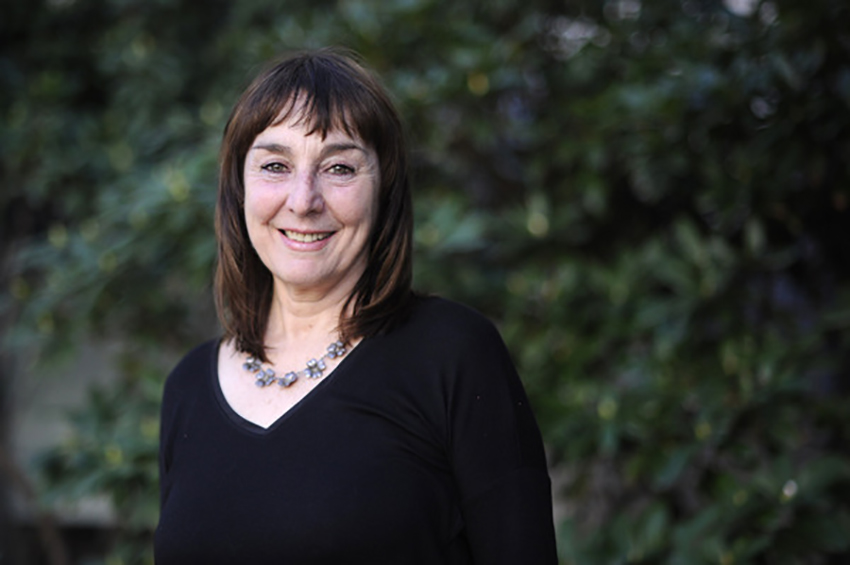A Northeastern Professor Made a Soap Opera About HIV Prevention

Rachel Jones. Photo courtesy of Matthew Modoono/Northeastern University
A Northeastern professor is using an interesting vehicle for spreading information about AIDS prevention: a soap opera.
Rachel Jones, an associate nursing professor at Northeastern, has focused her research on curtailing HIV and AIDS transmission among urban women, particularly African American women. To move her mission forward, the National Institute of Nursing Research, part of the National Institutes of Health, awarded Jones a $2 million grant to put toward intervention efforts targeted at urban African American women between the ages of 18 and 29.
But for Jones, a classic PSA wasn’t enough. Instead, she used the money to create “Love, Sex, and Choices” (LSC), a 12-part soap opera laced with references to responsible behaviors like safe sex and HIV testing. LSC follows the lives of four women—who, though fictional, are based on real stories—and tackles issues ranging from concerns about cheating to having sex with at-risk partners. Each episode concludes with advice from a “guide,” who points out risky behavior such as having sex with a partner who may not be monogamous.
Jones tested her concept in a 2013 pilot study, which found that women who had watched LSC exhibited fewer risky behaviors than women who received daily text messages about HIV prevention. That study was small—only 238 participants—but it suggested that a soap opera could be an effective mode of HIV intervention.
Now, Jones and her team at Northeastern are conducting a larger-scale study of LSC, hoping to test its efficacy on about 1,000 high-risk women, who they are reaching through online ads. Jones told News @ Northeastern that, if the current research is successful, she hopes to extend its reach:
“If the study is successful, our interest is to scale up so that LSC reaches the entire continent and beyond,” says Jones. “LSC is as much about women loving themselves, and honoring themselves, as it is about HIV prevention.”


